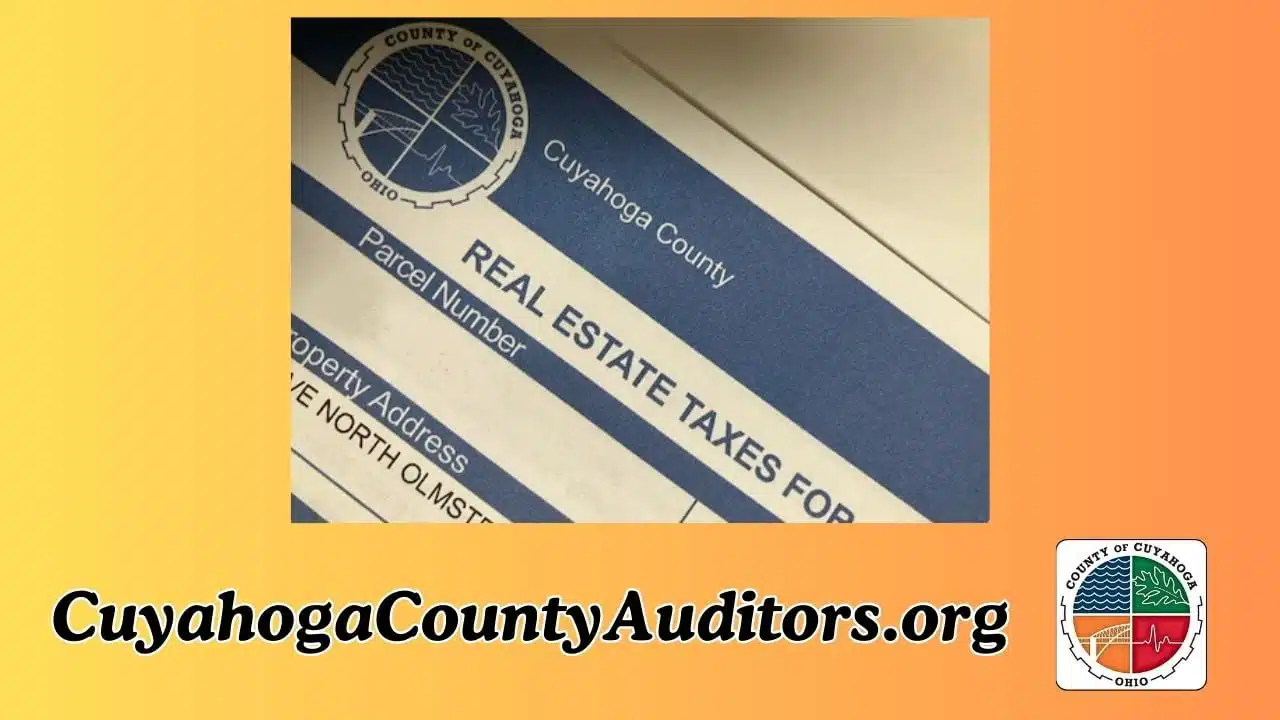Homeowners in Cuyahoga County can expect a detailed review of their property. This is to ensure taxes are calculated correctly. The goal is to find the fair market value of properties. This guide will help you understand what to expect and how to prepare.
What is a Property Inspection by the Cuyahoga County Auditor?
A property inspection by the Cuyahoga County Auditor checks a property’s condition and features. These inspections help determine property taxes based on market value. The county aims to make sure taxes are fair.
In Cuyahoga County, inspections happen every few years. They can also be triggered by property sales or homeowner requests.
Why Property Inspections Matter
Property inspections affect how much property tax homeowners pay. The value of the property determines the tax amount. These inspections make sure taxes are fair for everyone.
- Accurate Tax Assessments: Inspections ensure taxes are based on up-to-date information.
- Fairness: They make sure no one pays too much or too little in taxes.
- Property Records: Inspections keep property records accurate, including changes.
What to Expect During a Property Inspection
The property inspection process is straightforward and usually non-invasive. Here’s what happens during an inspection:
1. Notification of Inspection
You’ll get a notice from the county before the inspection. It will tell you when and where. Make sure to review it and get ready.
2. Exterior Inspection
Most inspections focus on the outside of your home. The auditor will check the lot size, home structure, and any changes that might affect value.
3. Interior Inspection (if applicable)
After big renovations or a recent sale, an interior inspection might be needed. The auditor will ask for permission to enter. They’ll look at room layout, square footage, and updates.
4. Data Collection
The inspector will take notes, photos, and measurements. This data helps evaluate the property’s condition and value.
5. Valuation Process
After the inspection, the auditor updates the property’s valuation. They consider market trends, condition, and improvements.
How to Prepare for a Property Inspection
Preparing for a property inspection is key. It ensures the inspection goes smoothly and the valuation is accurate. Here are some steps to prepare:
1. Review Your Property Records
Check the property records on the Cuyahoga County Auditor’s website before the inspection. Look for errors like wrong square footage or outdated information. If you find mistakes, correct them with the auditor’s office.
2. Make Repairs
Even though the auditor’s inspection isn’t as detailed, obvious damage can lower your property’s value. Crumbling foundations or damaged roofs are examples. Try to fix any issues before the inspector comes.
3. Document Improvements
Keep records of big changes to your property. This includes adding a deck, redoing the kitchen, or finishing the basement. Have building permits, contractor bills, and before-and-after photos ready. This helps ensure your property is valued correctly.
4. Be Present (if necessary)
Even though most inspections are just of the outside, you might want to be there. This is more important if they need to look inside. Being there lets you show off any recent upgrades or changes.
Common Features Evaluated During Cuyahoga County Property Inspections
| Feature | Description | Impact on Valuation |
|---|---|---|
| Property Size | Lot size and dimensions | Larger lots often have higher values. |
| Exterior Condition | Condition of the siding, roof, windows | Well-maintained exteriors increase value. |
| Additions/Outbuildings | Additional structures like garages | Can increase property value significantly. |
| Interior Condition (if inspected) | Condition of rooms, layout, and renovations | Modern updates and renovations increase value. |
| Landscaping | Quality and maintenance of landscaping | Well-maintained landscaping adds curb appeal. |
What Happens After the Inspection?
After the property inspection, the auditor’s office will reassess your property’s value. Here’s what happens next:
1. Updated Property Valuation
After the inspection, the auditor’s office updates your property’s value. This new value will be used to figure out your property taxes for the next year.
2. Notification of New Valuation
You’ll get a notice from the auditor’s office with your property’s new value. This notice will also tell you how your taxes will change.
3. Appealing the Valuation
If you think your property is overvalued, you can appeal. You’ll need to provide evidence, like an appraisal or recent sales, to support your claim. Appeals must be filed within a certain time, so check your notice for the deadline.
Important Deadlines for Property Valuation and Appeals in Cuyahoga County
| Event | Deadline | Contact Information |
|---|---|---|
| Property Inspection Period | Ongoing (varies by area) | 216-443-7010 |
| Notification of New Valuation | Sent after inspection is completed | Auditor’s Office |
| Appeal Filing Deadline | Within 30 days of receiving new valuation | 216-443-7921 |
Common Questions About Cuyahoga County Property Inspections
1. Do I have to allow the auditor to inspect my property?
You don’t have to let the auditor into your home. But, if you don’t, the value might be off. It’s better to let them in to get an accurate value.
2. Will my property taxes go up after an inspection?
Not always. Taxes depend on your home’s value. This could change after an inspection, based on your home’s worth and any updates.
3. What happens if I disagree with the valuation?
If you don’t agree, you can appeal. You can show evidence that your home is worth less than what’s listed.
4. Can I request an inspection?
Yes, you can ask for an inspection if you think your home’s value is wrong. This is good if you’ve made big changes or see errors in the records.
Conclusion
Property inspections by the Cuyahoga County Auditor are key for fair taxes. Knowing what to expect and preparing helps homeowners. Regular checks keep records right and can fix tax errors.
Being ready for an inspection or staying informed about it is smart. It ensures your home’s value is right in your taxes.






